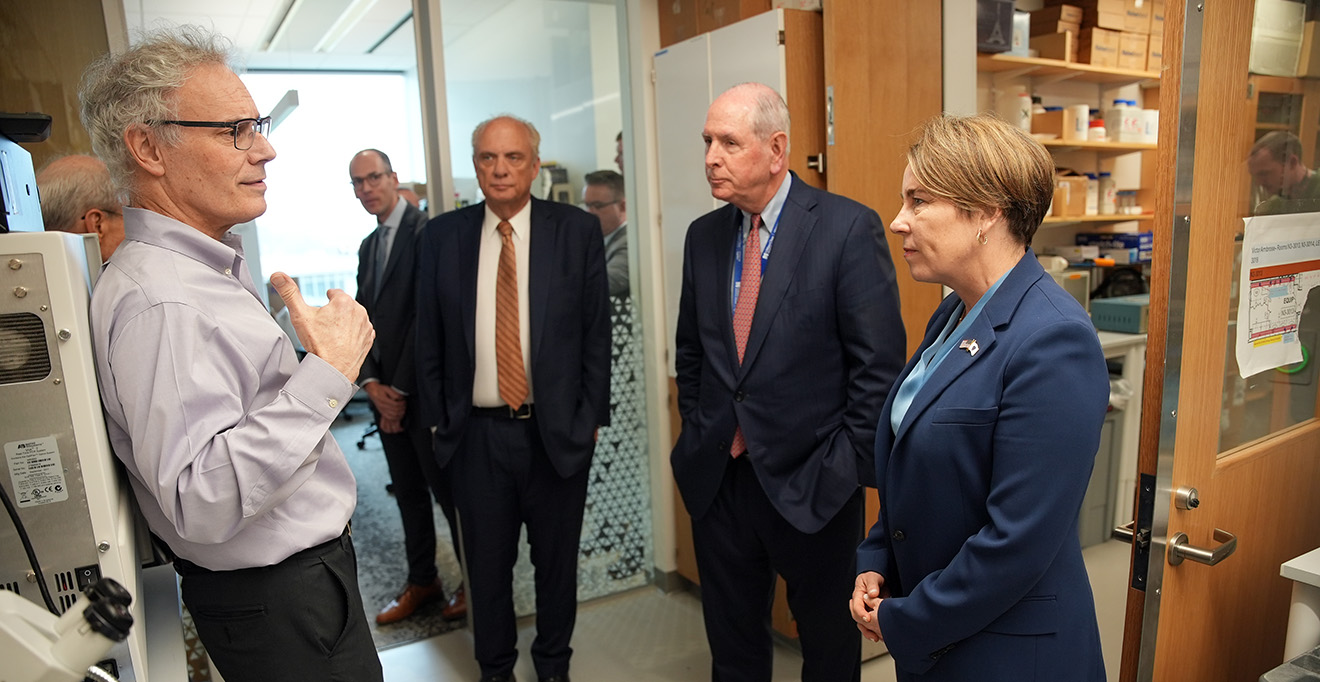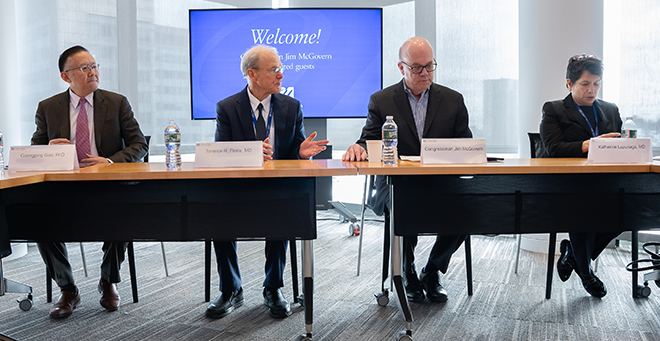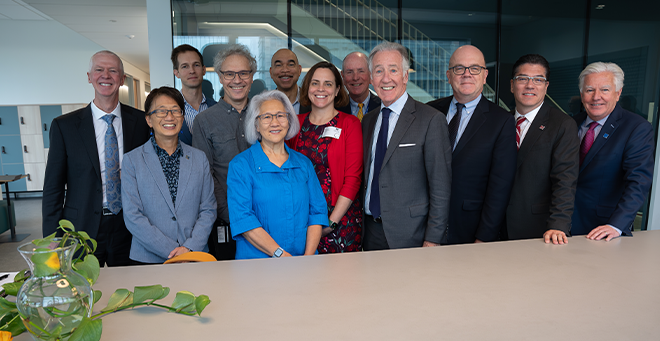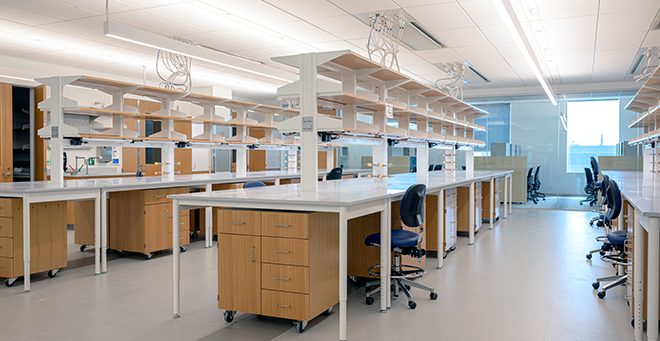Gov. Maura Healey visits UMass Chan
Video by Bryan Goodchild
The significant economic and research implications of cuts and delays to UMass Chan Medical School’s federal research funding were major points of focus during Massachusetts Governor Maura Healey’s special visit to UMass Chan Medical School on Tuesday, April 15.
Governor Healey was joined by Chancellor Michael F. Collins, Department of Public Health Commissioner Robbie Goldstein, MD, PhD; Worcester Mayor Joseph M. Petty; and Craig C. Mello, PhD, recipient of the 2006 Nobel Prize in Physiology or Medicine, Howard Hughes Medical Institute Investigator, the Blais University Chair in Molecular Medicine and distinguished professor of RNA therapeutics and molecular medicine.
“We need to make clear what’s at stake here,” Healey said. “The funding cuts are very extensive, including supporting critical work in gene therapy, rare disease research, HIV research, digital medicine, neuroscience and more. UMass Chan has held groundbreaking clinical trials of new genetic therapies for devastating conditions like ALS and so many other diseases. But this kind of progress is now at risk, and with that, hope is being stripped away from patients and families.”
UMass Chan received $193 million in National Institutes of Health funding last year but is now facing an approximately $30 million shortfall in NIH research funding due to long delays in funding new grants since the new administration took office in January. To make up for the shortfall and to prepare for federal funding uncertainty in the coming year, the incoming Morningside Graduate School of Biomedical Sciences class was significantly reduced, faculty recruitment has been paused, an estimated 200 employees have been furloughed or laid off, and all hiring and discretionary spending has been frozen.
Additionally, as was noted in the multi-state lawsuit that was co-led by the Massachusetts Attorney General in February, the NIH’s proposed cap on indirect costs would result in a loss of $50 million to UMass Chan next year. Citing these statistics, Governor Healey said UMass Chan, which employs more than 6,000 people and contributes in excess of $2 billion annually to the economy, is under threat, jeopardizing critical research and clinical trials.

Photo: Bryan Goodchild
“These are cuts to science, cuts to research and cuts that will be irretrievable if something isn't done to reverse them,” Governor Healey said.
"Research brings hope to the human condition, and it is shocking to an academic community like ours that research would be attacked, particularly by folks who believe that America should be the best,” Chancellor Collins said.
Governor Healey toured the lab of Victor R. Ambros, PhD, co-recipient of the 2024 Nobel Prize in Physiology or Medicine, the Silverman Chair in Natural Sciences and professor of molecular medicine, in the Paul J. DiMare Center; and participated in a closed-door meeting with Chancellor Collins; Terence R. Flotte, MD, the Celia and Isaac Haidak Professor, executive deputy chancellor, provost and dean of the T.H. Chan School of Medicine; Mary Ellen Lane, PhD, the Donna M. and Robert J. Manning Chair in Biomedical Sciences, professor of neurobiology and dean of the Morningside Graduate School of Biomedical Sciences; Joan Vitello-Cicciu, PhD, the Donna M. and Robert J. Manning Chair in Nursing, dean of the Tan Chingfen Graduate School of Nursing and professor of nursing; many academic chairs, and senior research and administrative leaders to hear how the NIH funding cuts are impacting various areas of science and research across campus, including impacts to graduate level training, junior faculty career paths, and ARPA-H funding programs.


